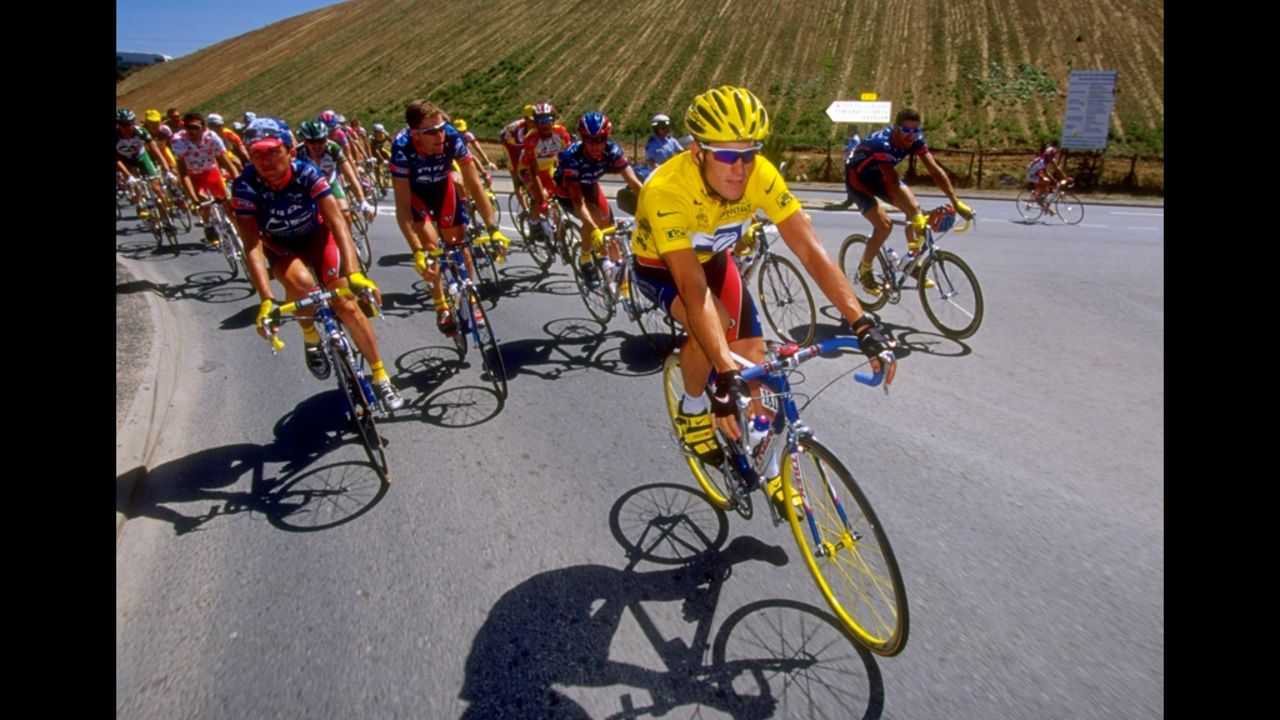
In a dramatic turn of events at the recent Women’s Tour de France, defending champion Demi Vollering suffered a fall that cost her the overall lead and sparked a wave of controversy and discussion within the cycling community. As she battled through the race, riding alone to the finish line, her teammates Blanka Kata Vas and Lorena Wiebes faced criticism for not stopping to assist her. Lance Armstrong, the former cycling icon, has now weighed in on this unfolding narrative, providing insights into Vollering’s situation and the broader implications for teamwork in cycling.
The Incident: A Race to Remember
The Women’s Tour de France has always been a platform for showcasing female cyclists’ incredible talent and resilience. This year’s event was no different, with Vollering entering as a favourite after her impressive performances in previous races. However, during a crucial stage, she experienced a fall that dramatically altered her trajectory in the competition.
As Vollering hit the ground, her immediate concern was not just her physical state but also maintaining her position in the race. Unfortunately for her, Vas and Wiebes—her teammates—continued racing instead of stopping to help. This decision proved costly; Vollering lost approximately a minute and a half to her competitors, ultimately surrendering her lead to Poland’s Katarzyna Niewiadoma.
Armstrong’s Perspective
Lance Armstrong, who knows all too well the pressures of competitive cycling, commented on the incident during a recent podcast episode. “It’s tough to see a rider like Demi go down and then have her teammates leave her behind,” he stated. “In cycling, teamwork is everything. You can’t win alone, and when you’re in a situation like that, teammates must rally around each other.”
Armstrong’s remarks highlight an essential aspect of professional cycling: the balance between individual ambition and team dynamics. While each rider aims for personal glory, success often hinges on how well they can work together as a unit.
The Fallout from the Incident
The fallout from Vollering’s fall has been significant. Fans and analysts alike have taken to social media to express their outrage over Vas and Wiebes’ decision not to assist their teammates. Many believe that in such high-stakes situations, camaraderie should take precedence over individual competition.
“Cycling is about more than just winning; it’s about sportsmanship,” one fan tweeted. “Vollering deserved better from her team.” This sentiment reflects a growing expectation among fans that athletes should prioritise teamwork and support over personal glory.
Vollering herself expressed disappointment but also determination in her post-race comments. “It was frustrating to find myself alone after such a hard fall,” she said. “But I’ll keep fighting; this isn’t over yet.” Her resilience resonates with fans who admire her tenacity despite setbacks.
The Role of Team Dynamics
Armstrong’s insights into team dynamics shed light on how critical these relationships are in competitive cycling. In many instances, races are won or lost based on how well teams can support their lead riders while also managing their ambitions.
“Teamwork is what sets champions apart,” Armstrong noted. “When you have riders willing to sacrifice for one another, it creates an environment where everyone can thrive.” This philosophy underscores why many successful teams prioritise building strong bonds among their members.
In contrast, when team dynamics falter—as seen in this incident—the consequences can be dire. Vollering’s experience serves as a cautionary tale about the importance of unity within teams during high-pressure situations.
The Bigger Picture: Women’s Cycling
The incident involving Vollering comes at a time when women’s cycling is gaining increased visibility and recognition. The Women’s Tour de France has attracted significant attention this year, showcasing elite talent and thrilling races that captivate audiences worldwide.
However, incidents like this raise questions about how far women’s cycling still has to go regarding support systems within teams. As more women enter professional cycling, teams need to foster an environment where collaboration takes precedence over individual ambition.
Armstrong emphasised this point: “Women’s cycling is evolving rapidly; it needs strong role models who understand both competition and camaraderie.” His call for unity echoes sentiments shared by many advocates for women athletes striving for equality in sports.
Looking Ahead: What Lies Ahead for Vollering
As Vollering navigates the aftermath of this incident, her focus will undoubtedly shift towards future races and reclaiming her position as a top contender. With the season still ongoing, there are ample opportunities for redemption—both personally and professionally.
“I’m excited about what’s next,” Vollering stated confidently. “I know I have what it takes to bounce back.” Her determination reflects an unwavering spirit that resonates with fans who appreciate resilience in athletes.
Moreover, as discussions surrounding teamwork continue within the cycling community, both riders and teams need to learn from this experience. Building strong bonds among teammates can lead to greater success on race day while also fostering a sense of community within women’s cycling.
A Lesson in Teamwork
The untold story behind Demi Vollering’s fall during the Women’s Tour de France serves as both an eye-opener and a reminder of how critical teamwork is in professional sports. Lance Armstrong’s insights into the situation highlight not only the importance of camaraderie but also how individual ambitions must sometimes take a backseat to team success.
As Vollering prepares to move forward from this setback, she carries with her valuable lessons learned—not just about racing but about resilience and unity within competitive environments. The incident has sparked conversations around support systems in women’s cycling that will likely influence how teams operate moving forward.
In celebrating both Vollering’s talent and the growing visibility of women athletes in sports, one thing remains clear: teamwork is essential not only for winning races but also for fostering an environment where all athletes can thrive together!
Leave a Reply